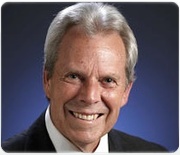Taylor Hartman
Taylor Hartman is the author of the best-selling books, The Color Code (1987), Color Your Future (1991), about becoming more charactered; Sandcastles (2001), about becoming more loving; and Playing Life to Win: A Game Plan for Self Development (2008). He has also updated "The Color Code" under a new title: The People Code: It's All About Your Innate Motive (2007). Hartman is a member of The Church of Jesus Christ of Latter-day Saints, sometimes casually called the Mormon Church.
Hartman began thinking about the field of psychology while serving a mission. As a missionary, he found that he loved people and wanted to help them resolve their relationship problems. Later, as a practicing therapist, he knew that the behaviorism that dominated the field of psychology in the 1970s didn't go far enough to effectively help him treat his clients.
Hartman concluded that all people are born with one of four personality types, to which he assigns a color. "Reds" are motivated primarily by power, "Blues" by intimacy, "Yellows" by fun and "Whites" by peace. [1] Each personality type has its potential strengths and weaknesses. Hartman considers himself a fun-loving "yellow," and as such has found it somewhat difficult to buckle down to the sustained effort of these extensive writing projects. His "Blue" wife, Jean, told him he would have to write a chapter a week before they could go out on the weekends.
His first, groundbreaking, book was called The Color Code. He took his only copy on a 1986 Hawaiian vacation and lost it on the way home. A full week passed before he realized it was missing and called the airport. Luckily, the ticket agent he called found it sitting on the chair where he'd left it. Hartman attributes the recovery of the one-and-only manuscript to divine providence.
Hartman invites his clients and readers to overcome the weaknesses associated with their personality type and develop strengths not native to their personality type. He then encourages individuals to develop character and have the greatest motive of all: selfless contribution and service.
"You get to know yourself so you can get over yourself," Hartman believes. He believes that no matter how "charactered" (able to gain the strengths of non-native colors) one becomes, it's essential to remain true to one's own core personality. Hartman finds the teachings of the gospel invaluable in his work with clients.
- "I cannot imagine being a therapist without a gospel background," he said. "Psychology is so unrooted. The gospel roots me. It's better, deeper, richer and more true than psychology."
